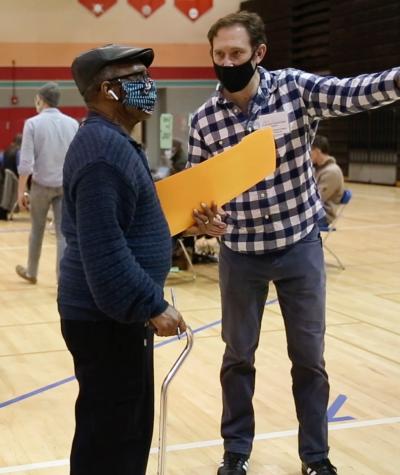No matter our color, party or zip code, we all want an equal say in the decisions that shape our future. But in recent years, we’ve seen our freedom to vote come under attack.
The U.S. Senate Committee on Rules and Administration recently held a hearing on the administration of the 2022 midterm elections. Witnesses for the hearing included election officials in Pennsylvania, Louisiana and Florida, in addition to election and civil rights experts.
Testimony and questions covered a variety of topics such as threats and attacks against dedicated election administrators, election misinformation and voter access.
Nonpartisan election workers are the backbone of our democracy, but the Brennan Center for Justice reported that one in six election officials have received threats for doing their job. One in five have decided these threats are not worth the risk and reported that they don’t intend to serve through the 2022 midterm elections.
Witnesses during the hearing testified about threats and harassment targeting nonpartisan election workers. Wesley Wilcox, Supervisor of Elections for Marion County, Florida, testified about the link between misinformation and threats of violence against election workers and their families.
“Misinformation has made our jobs more difficult as we battle on the frontlines of defending our democracy,” he said. Many of his tenured colleagues have announced their retirement or impending retirement due to “these unceasing false narratives.”
They’re not alone. In fact, 30% of officials polled by Brennan Center for Justice knew one or more election worker who left at least in part due to fear for their safety.
In general, our elections are run by principled Americans dedicated to ensuring that every vote is properly counted.
Election workers are true patriots who stand up for free and fair elections so that the will of the people prevails. Following Election Day, these officials use verified and secure procedures for counting ballots and certifying the outcome of elections.
For starters, there’s an election canvas. This is when election workers compile vote counts from all sources into a single final vote total for the relevant area. A central part of canvassing includes inspecting returns to ensure that the number of votes reported is consistent with other data points.
Election workers attempt to resolve any discrepancies that may be identified, with state and local law providing guidance on how to remedy any problems that arise. These time-tested methods to count ballots are designed to ensure that election outcomes are fair and accurate.
Leigh Chapman, Acting Secretary of the Commonwealth of Pennsylvania, highlighted the need for robust, consistent funding of elections. Local counties typically finance the costs of our elections, and they do not have enough assistance from the federal government to meet growing challenges.
Voting machines and equipment need to be modernized to help sustain and secure democracy, a point that was highlighted by many of those testifying at the hearing. Staff and volunteers need to be recruited, trained and retained.
Local officials need to procure enormous quantities of raw materials like paper, which is subject to the same global supply chain crisis affecting the U.S. economy.
In advance of the hearing, Sen. Amy Klobuchar—Chairwoman of the Senate Rules Committee—introduced the Sustaining Our Democracy Act, which would provide $20 billion in mandatory federal funding over the next decade to help states and local governments support election administration.
Funding is critical to ensure free and fair elections. State and local governments must have the resources needed to strengthen election administration, protect election officials on the frontlines and provide all eligible voters with the opportunity to make their voices heard.
When partisan actors sow distrust in our elections through intimidation tactics and misinformation, it distracts from the steps we can and must take ahead of the next election to ensure things run as smoothly as possible.
Instead, we should prepare for the next election and work to prevent election worker shortages and provide local election agencies with the resources they need to ensure every ballot is accurately counted. Our democracy depends upon it.

